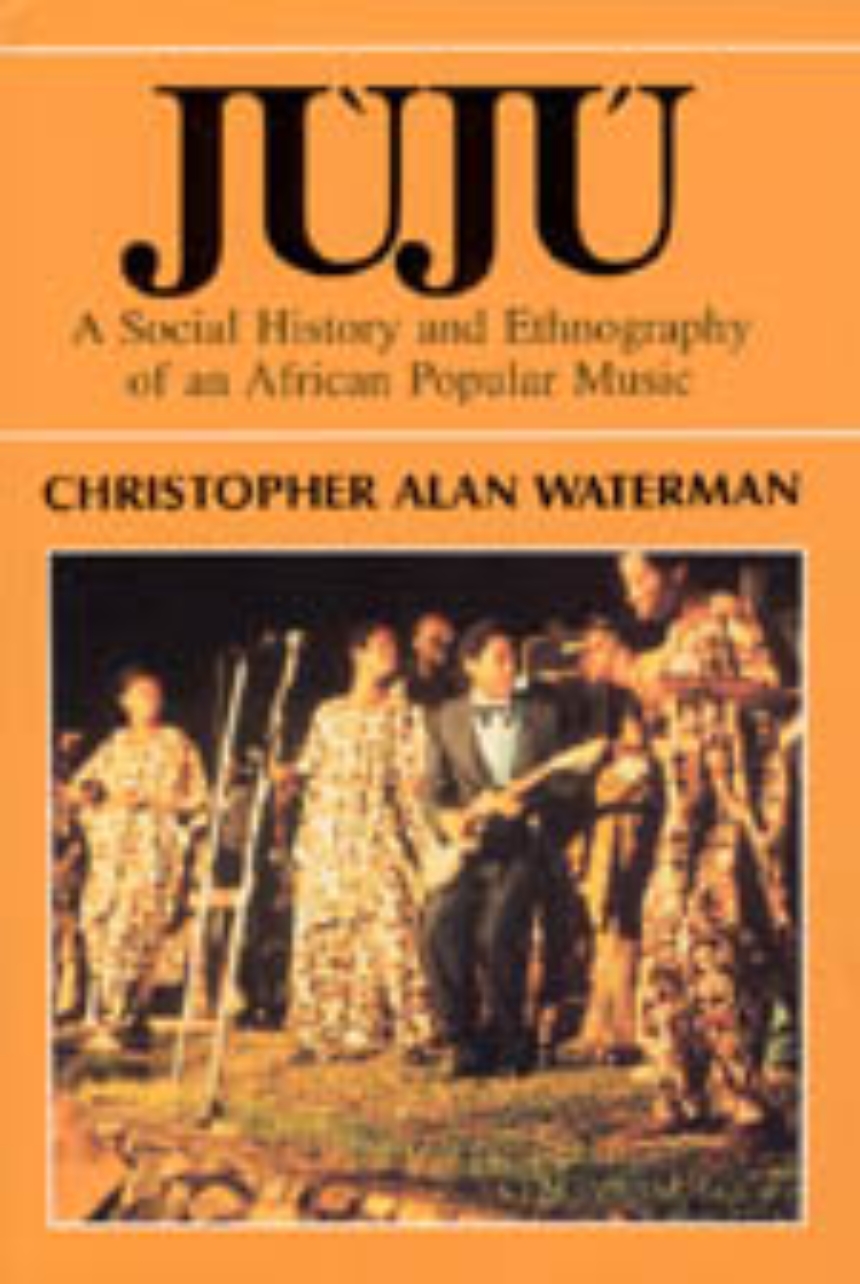Juju
A Social History and Ethnography of an African Popular Music
Now known internationally through the recordings of King Sunny Ade and others, juju music originated more than fifty years ago among the Yoruba of Nigeria. This history and ethnography of juju is the first detailed account of the evolution and social significance of a West African popular music. Enhanced with maps, color photographs of musicians and dance parties, musical transcriptions, interviews with musicians, and a glossary of Yoruba terms, Juju is an invaluable contribution to scholarship and a boon to fans who want to discover the roots of this vibrant music.
285 pages | 4 color plates, 24 halftones, 18 musical examples, 4 maps | 6.00 x 9.00 | © 1990
Chicago Studies in Ethnomusicology
Anthropology: Cultural and Social Anthropology
Music: Ethnomusicology
Reviews
Table of Contents
Acknowledgments
Technical Notes
1. Introduction
2. Sákárà, Asíkò, Highlife, and Palmwine: Lagosian Popular Music between the World Wars
3. Early Jùjú Music (1932-1948)
4. The Development of Modern Jùjú (1948-1982)
5. The Social Organization and Contexts of Jùjú Performance in Ibadan
6. The Aesthetics and Social Dynamics of Jùjú Performance at the Yoruba àríyá
7. Jùjú Music and Inequality in Modern Yoruba Society
Appendix: Roster of Ibadan-Based Jùjú and Fuji Bands
Notes
Glossary of Yoruba Terms
Bibliography
Index
Technical Notes
1. Introduction
2. Sákárà, Asíkò, Highlife, and Palmwine: Lagosian Popular Music between the World Wars
3. Early Jùjú Music (1932-1948)
4. The Development of Modern Jùjú (1948-1982)
5. The Social Organization and Contexts of Jùjú Performance in Ibadan
6. The Aesthetics and Social Dynamics of Jùjú Performance at the Yoruba àríyá
7. Jùjú Music and Inequality in Modern Yoruba Society
Appendix: Roster of Ibadan-Based Jùjú and Fuji Bands
Notes
Glossary of Yoruba Terms
Bibliography
Index
